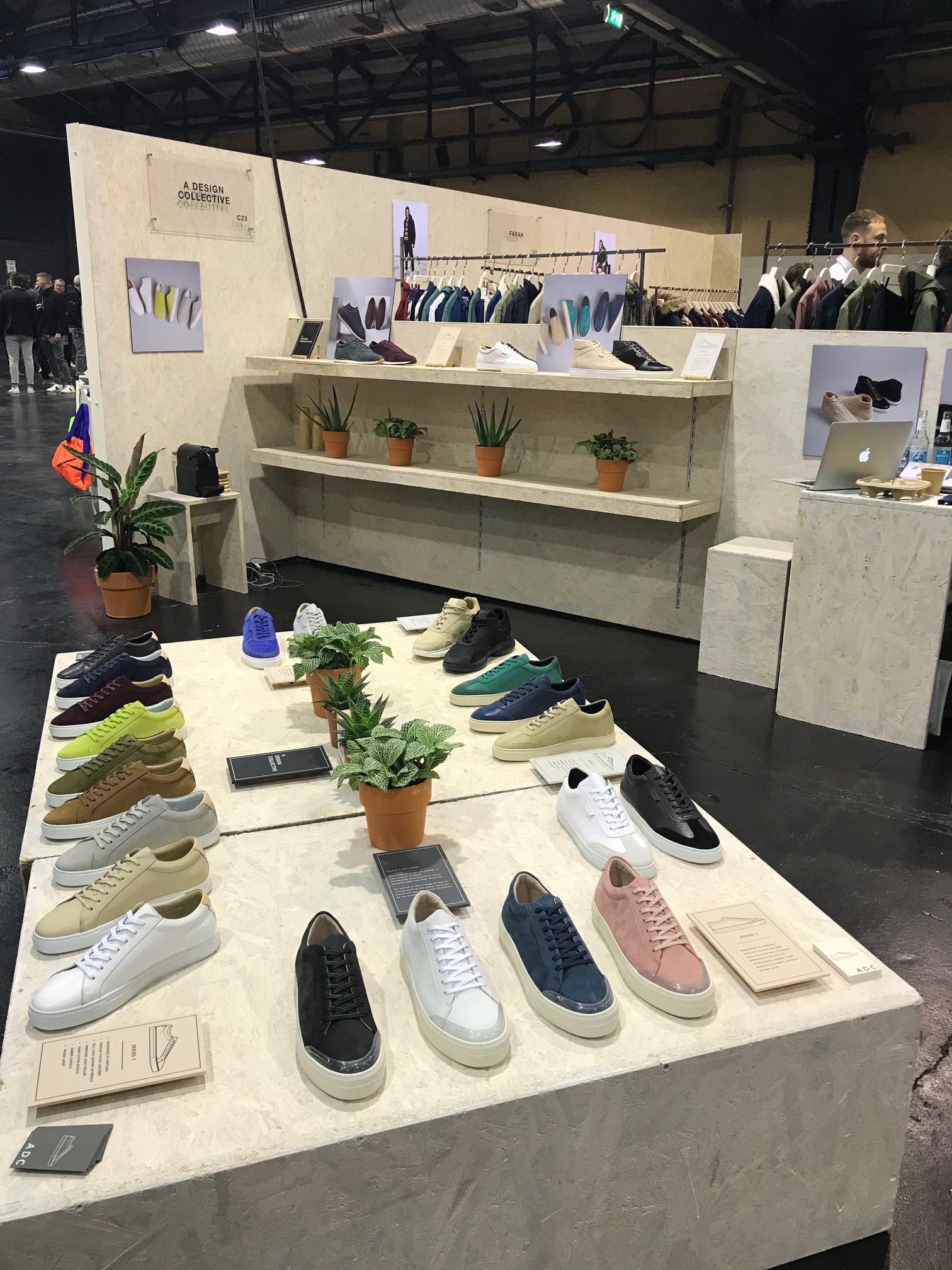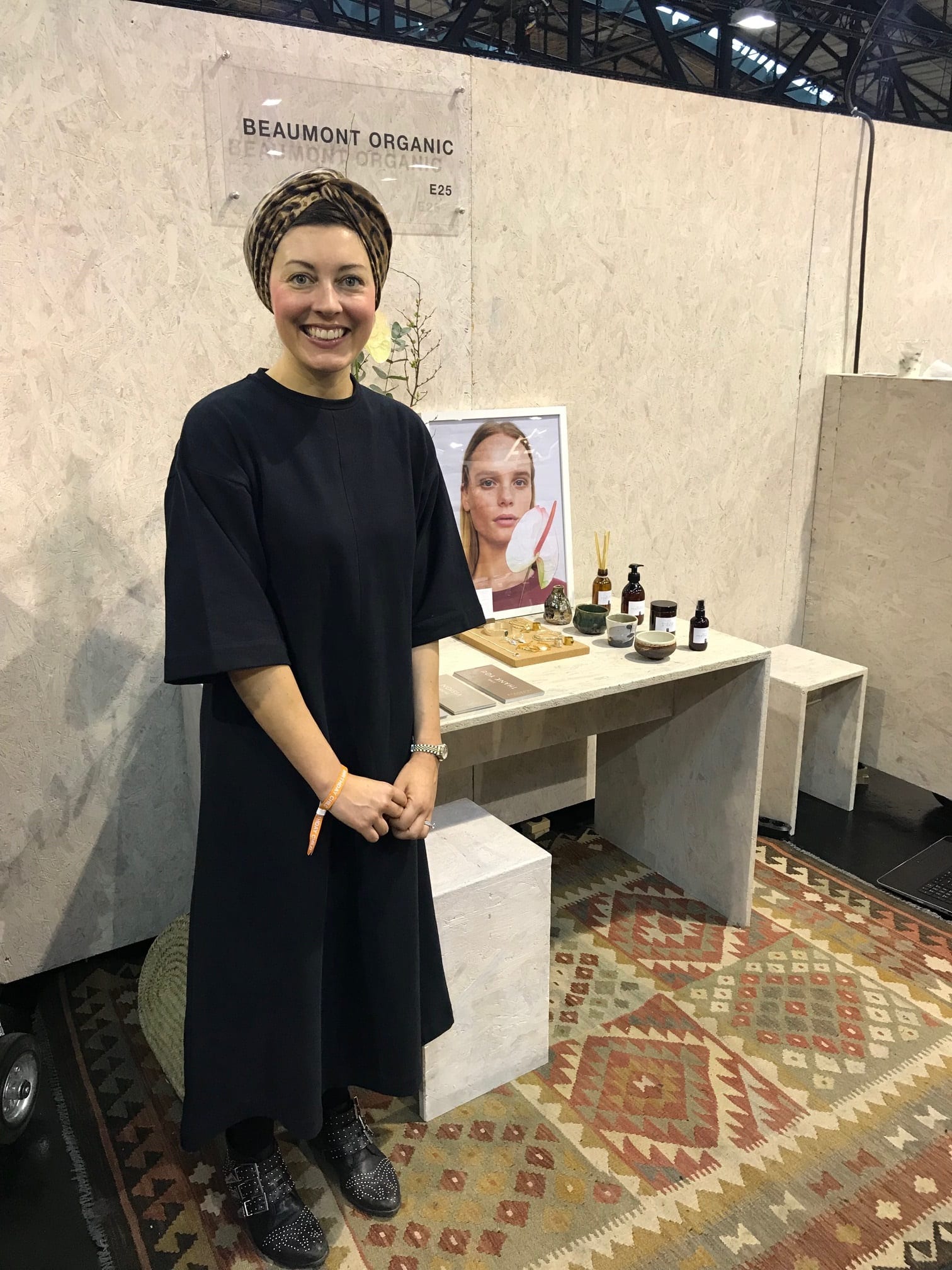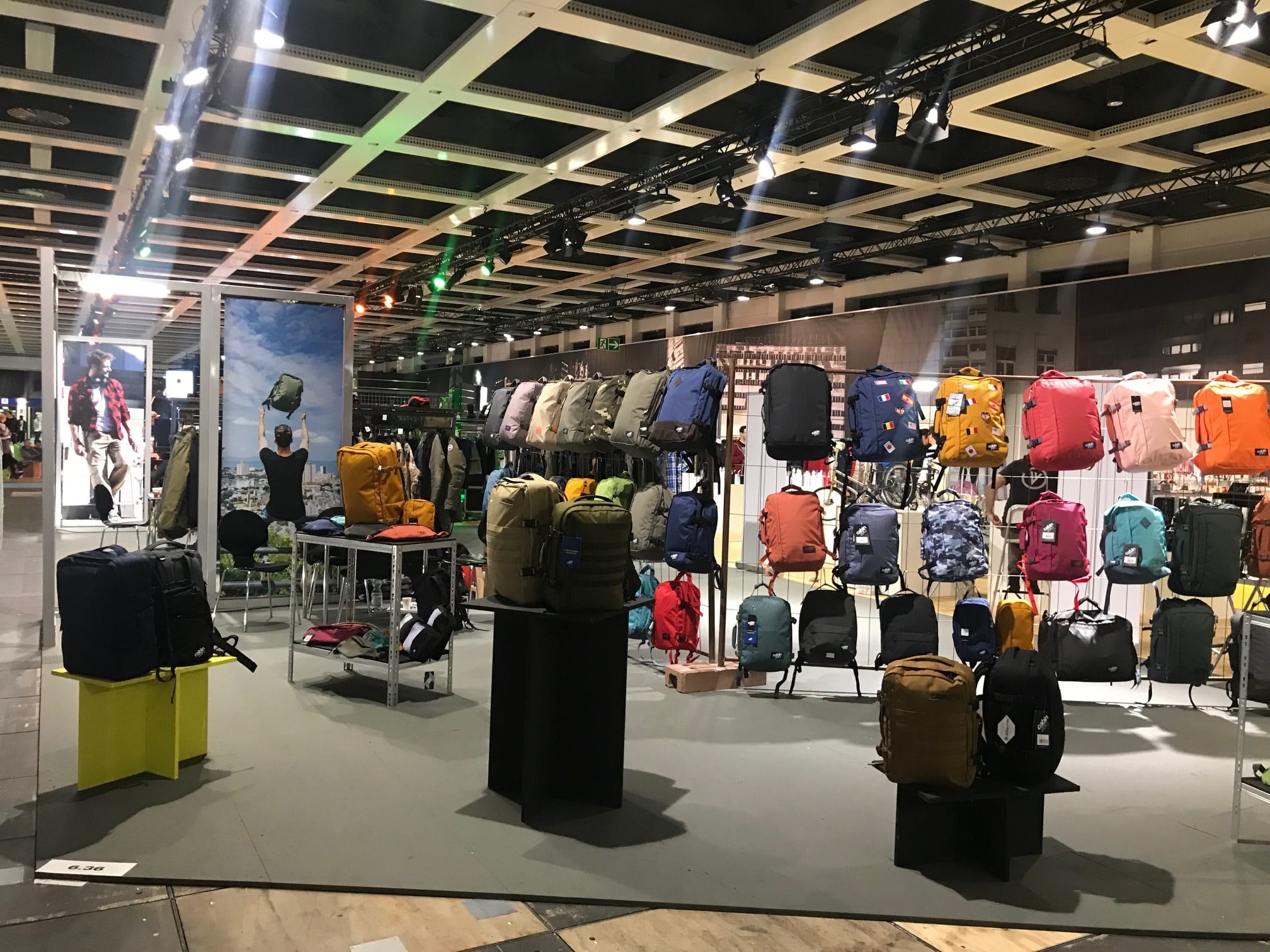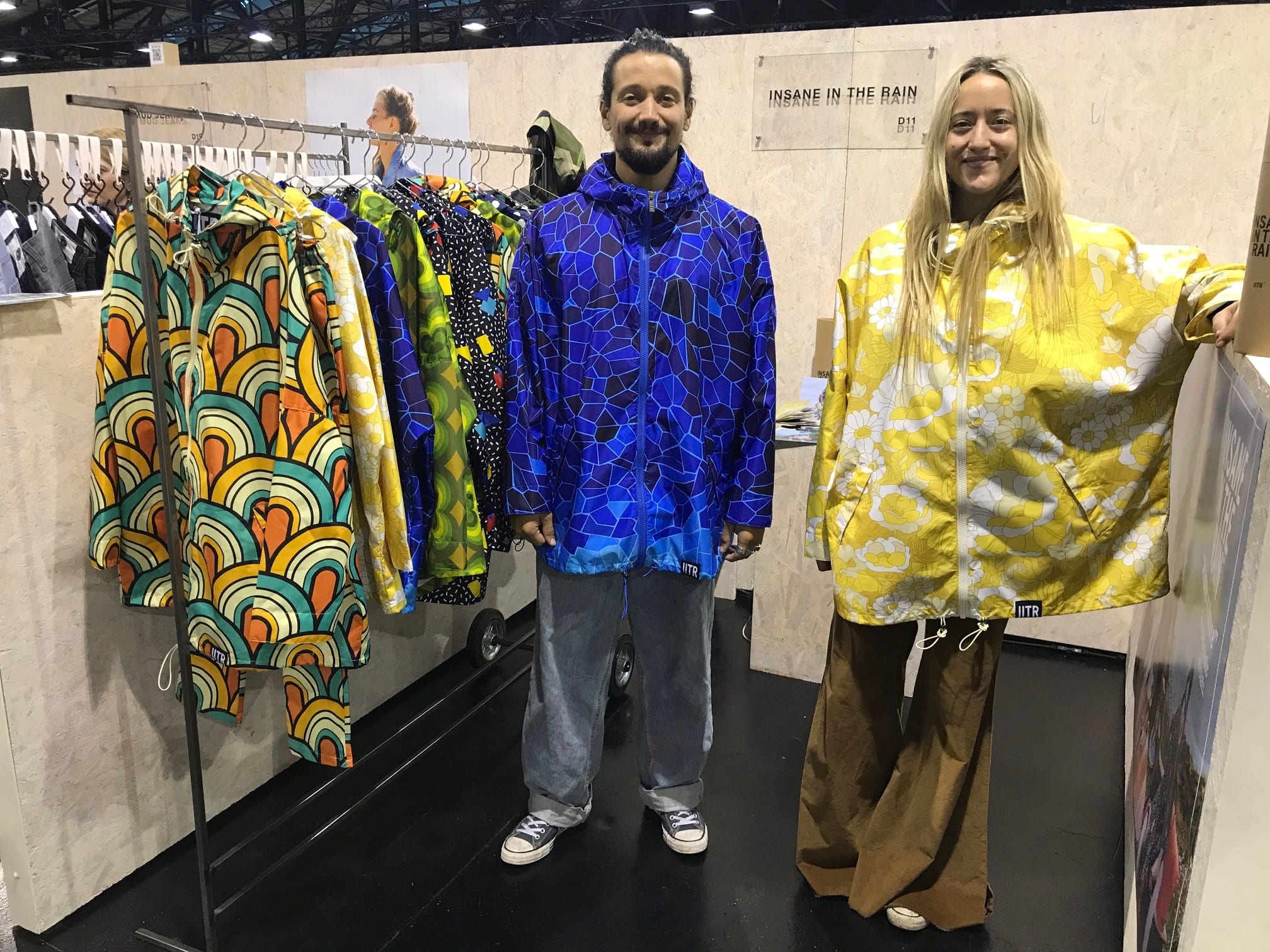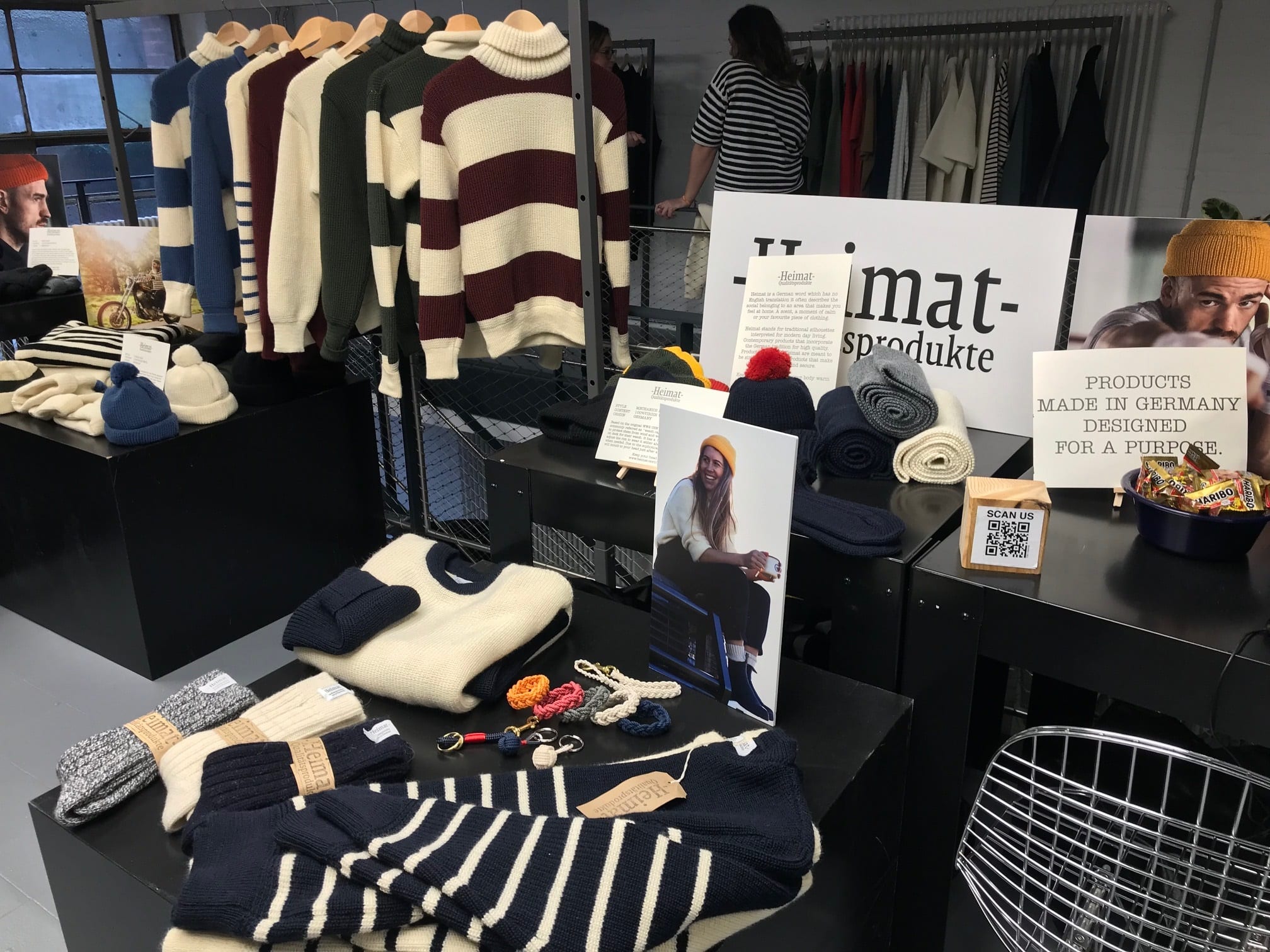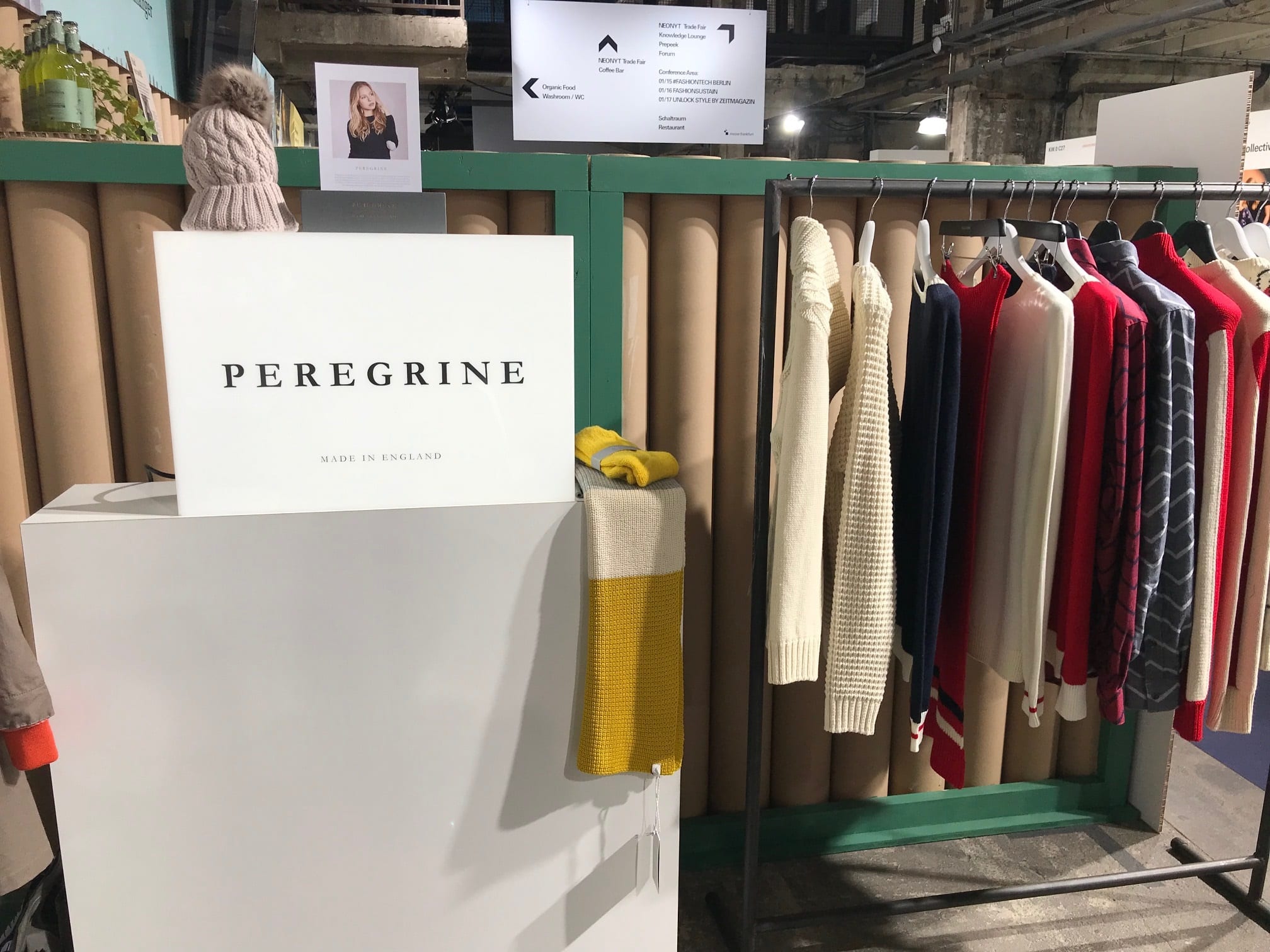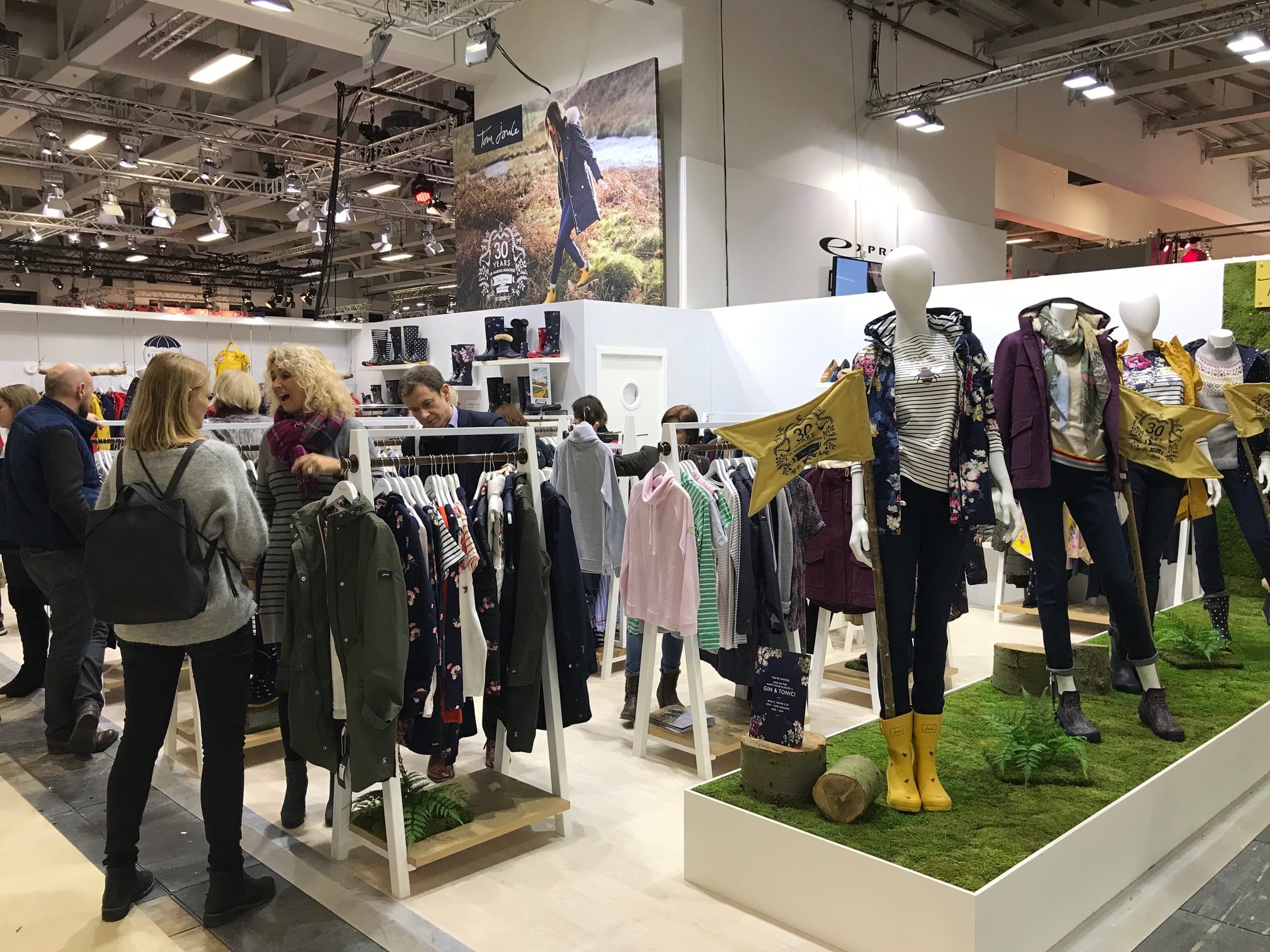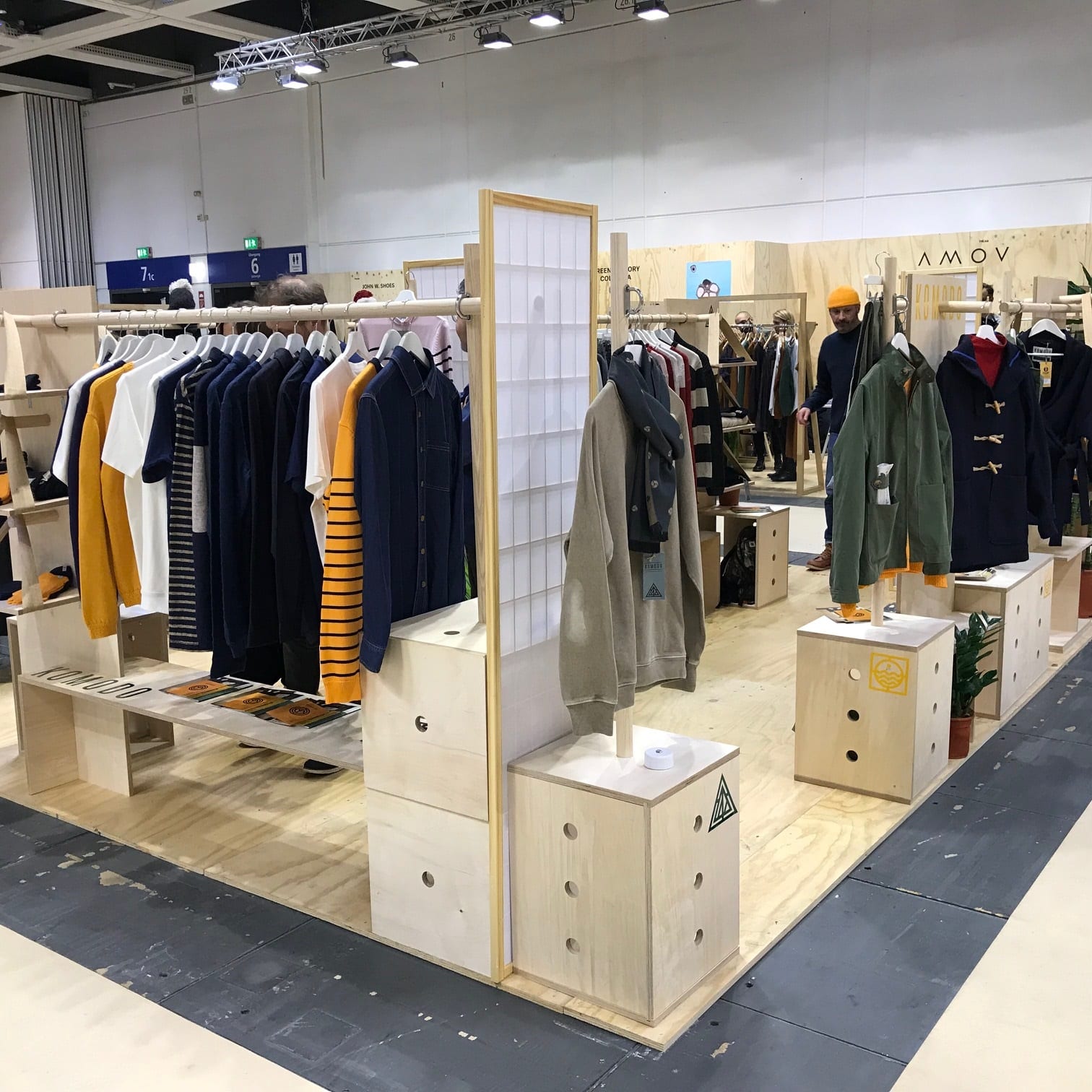Views from Berlin Fashion Week AW19
20/02/2019
Since the reunification of Germany, Berlin has established itself as the home of Germany’s key international tradeshows, closely followed by powerful market weeks in Düsseldorf, Munich and other regional centres. Berlin Fashion Week (taking place on 15-17 January 2019) includes four international tradeshows headed up by Premium, Show and Order, Seek, the Ethical Fashion Fair and Green Showroom (rebranded NeoNyt this season) as well as the regional behemoth Panorama which also now includes the international heritage menswear show Selvedge Run. The shows run on the same dates and there are shuttles between most of them. Premium, Seek, Show and Order, Seek and NeoNyt have a common entrance policy and badging. This season, Selvedge Run was formally integrated into Panorama, a move UKFT had anticipated for some time but which, nevertheless, raised a few eyebrows.
Traditionally, Berlin Fashion Week attracts an international audience and is a major player in northern European fashion scene. Selvedge Run and Seek in particular are popular with buyers from all over Europe, the USA and Japan. The other shows are more European in their overall appeal and many of the stands are run by German agents, also covering the German-speaking markets of Switzerland and Austria. There are no official figures on how many buyers attend but Premium and Seek boast 60,000 per season across its shows and it is likely that there is a lot of crossover between the events so this may be valid as an attendance figure across all the shows.
Panorama, Premium and Show and Order are particularly popular with buyers and agents from Germany and the rest of northern Europe. NeoNyt is the world’s largest sustainable fashion event. Selvedge Run and Seek appeal to buyers from all over Europe as well as Japan and the USA, especially because of the presence of Heritage brands.
Panorama and Selvedge Run
Panorama feels like the archetypical large and professional German fair. Larger stands for brands such as Tom Tailor and Tally Weijll, were joined by British brands including Tom Joule, Brakeburn and Weird Fish. As before, there was also a sizeable sustainable fashion section co-organised with Innotex with Komodo. Cabin Zero was also showing. Most of the stands throughout Panorama were run by German agents or at the very least had German speakers on their stands.
Selvedge Run was co-located at the main entrance of Panorama to ensure high visibility but this also had the unwanted effect of making the show stand out as something of an oddity in what is, otherwise, a very mainstream trade fair. The price points and styles of Panorama and Selvedge Run were at opposite of the scale and this uncomfortable juxtaposition led a number of Selvedge Run brands to skip a season. Selvedge Run used its traditional stand construction albeit that the very high ceiling took away the intimate feel for which the show was always known. It was also a great shame that the organiser chose to site a German brand trading as “Club of Gents” inappropriately using a “Savile Row” sub brand on the edge of Selvedge Run. UKFT has been in touch with Savile Row Bespoke, the organisation which promoted the real Savile Row and its tailors. None of the garments on the stand were manufactured anywhere near Savile Row.
UKFT’s Paul Alger said: “It was very amusing on the first day of the show to watch the Panorama and Selvedge Run exhibitors eyeing each other up. Clearly, neither group had ever seen anything quite like it. The Panorama exhibitors were bemused by the bushy beards and tattoos of so many of the SR hipsters. At the same time, the Selvedge Run exhibitors had not seen so many moccasins and fake tans in a long while.”
Nevertheless, Scottish leather designer and manufacturer Simmons Bilt said that they had had a successful show with buyers visiting from Europe, the USA, Canada and China. Saying that “Shane [the organiser] has pulled it off”.
On a much more positive note, the Panorama ethical section now runs across two halls and brings a good selection of sustainably commercial fashion and accessories brands to the market. In this way, sustainability is put at the heart of commercial fashion, where it undoubtedly has an extremely important role to play. The new streetwear hall where Cabin Zero showed was well presented and hat a number of interesting and experimental brands.
Premium and Show and Order
Premium (and Show & Order) is the longest running show in Berlin. It was born in Berlin and remained faithful to the city when Bread and Butter moved off temporarily to sunnier climes. This commitment to the market has led to the show’s organiser, Anita Tillmann, being at the heart of an impressive fashion show empire, now owned by Clarion which also includes Seek and Bright.
As its name would suggest, Premium is based largely around “better” fashion and accessories. There are some areas of overlap with Panorama but the two offers are very different even if they are complementary. Generally speaking, Premium attracts more international collections, especially those from Scandinavia.
This season, Premium underwent a layout change as the show organisers rationalised the main womenswear show floor to make things easier for buyers, creating areas of specific focus. Some halls were the same as before but Hall 1 was much cleaner and easier to navigate than before and with more interesting collections and signage.
Halls 1-4 remained dedicated to upscale or “better” women’s fashion collections. Halls 5 and 6 have a mixture of unisex footwear and some larger menswear brands. As with most shows, there was a lot of denim showing this season and almost every collection had some “mustard” colours and tones.
British exhibitors included: Emily and Fin; Parka London, Pretty Ballerinas and Eribé Knitwear. The only UK brand in Show and Order was Leju Jewellery.
The British exhibitors were generally busy, with business in line with the previous season. As with Panorama, most of the stands were manned by local agents or had staff with excellent German.
Show and Order remained in the Kühlhaus on the way out of the show. This show-within-a-show maintains its distinct look and feel with a “resort” feel. Buyers were encouraged to visit Show and Order on their way out of the show but it is fair to say that many did not and that not all those who entered the Kühlhaus made it up to the higher floors. This is a shame as there were interesting collections to be seen.
Seek
Seek is home to the majority of the UKFT #britsinberlin and was its usual vibrant self, a complex mix of upscale casual, heritage and sportswear collections. Like Selvedge Run, Seek is also home from home to Berlin’s hipsters and ethical brands. As you would expect, there was a lot of the ubiquitous “mustard” tones we have seen this season.
The UK regulars at the event include: Beaumont Organic, returning UK licenced brand Ben Sherman, Far Afield, Fred Perry, Gola Classics, Hymn, Native Youth, Oliver Spencer, Wawwa and a group organised by UK agent Polly King which featured 7L from Manchester and Wax London.
This season there were some exciting new additions: A Design Collective and Insane in the Rain both of whom were delighted with the show. Both companies met potential new agents and buyers from Europe and beyond.
Karen Ames of Bern Sherman UK said they were delighted with the show as it gave their new team the chance to connect with and take orders from new and existing customers.
In the new “Trades Union” section of the show, a curated show-within-a show inspired by Selvedge Run, British brands Heimat, and Thomas Dutton and Throwgood showed and were pleased with their first experience. Whilst the space is smaller and more enclosed than Selvedge Run, the organisers hope to be able to increase their space by adding an extra room or relocating Trades Union into another part of the show.
From UKFT’s conversations with exhibitors and buyers, it would seem that niche quality European heritage and the Americana buyers visited both Selvedge Run and Trades Union as well as the rest of Seek. The organisers clearly have their sights on some of their competitors’ exhibitors but they are keen for Trades Union to evolve not to be simply a replica of another show. This makes sense as there is potentially a middle ground between Seek and Trades Union which it could easily fill.
There was no edition of Bright this season. Previously Bright had taken place in an adjacent hall to Seek at Arena Berlin. The cancellation of Bright led one or two more skatewear-inspired brands to show at Seek, a trend which was not universally popular, especially with some of the more contemporary brands. The hall which used to house Bright was left empty meaning that the overall offer at Arena Berlin was slightly smaller than before but the organisers have yet to announce whether they will revive Bright next season or put that hall to other uses.
Neonyt
Neonyt (“Neo” Greek for “New” and “Nyt” from the Swedish “Nytt” meaning “The New”) is the new branding for what used to be the Ethical Fashion Fair and the Green Showroom, organised at Kraftwerk Berlin, a 15 minute shuttle ride from Seek. Although the show has a separate organiser (FrankfurtMesse) a common entrance and badging policy operates with Premium/Seek and Show&Order.
The show is the largest sustainable fashion trade fair show in the world and is well laid out over three floors with a seminar and conference facility on the third floor. The British exhibitors included: Bluebuck, Cossac, and Peregrine.
It has to be said that this interesting show was painfully well lit. A number of exhibitors reported that buyers had complained to them about this and that some had left their stands. Overall the buyer traffic seemed steady although most exhibitors said they had only seen their regulars.
Neonyt is certainly the best sustainable fashion event of its kind but for the past few seasons the show has struggled to appeal to designer brands. Beaumont Organic and Wawwa chose to show at Seek because the style of the other collections is more appealing to their target buyers. Komodo show at Panorama which is altogether a more commercial event. Throughout all the shows this season, sustainability has been a major trend but it does seem that sustainable brands increasingly show with their peers, regardless as to their ethical credentials. Whilst this is a positive development, it presents a number of challenges for the show organisers in the long term.
Pierre David of Bluebuck was very positive about the show: “We have had a very positive second show at NeoNyt with approximately 25 new contacts, including one very large and famous French luxury department store! I have taken some orders and been approached by a potential agent so I am pleased.”
On the subject of Brexit he added: “Everyone has been asking me about Brexit and I have been very clear with them. I am a Frenchman who loves living and working in London. The brand is sustainably produced in Portugal and Austria. Bluebuck is proudly a British-based European brand – that is not likely to change!”
Market trends and Brexit
The German (and greater European) retail market is still adjusting to the stratospheric rise of e-tail, especially in Germany. As last season, it was clear to all that etailers and platforms like Zalando, Otto Group and My Theresa have made a huge hole in brick and mortar sales. This, in turn, has seriously damaged Germany’s network of commercial agents, many of whom are finding that the etailers want to work direct with brands. This trend is likely to continue and it leads to confusion and sluggishness in the market.
Berlin Fashion Week also saw the loudest conversations we have heard yet on Brexit as buyers and agents expressed grave concern over how they would be able to work with UK brands after 29th March 2019. A number of larger UK brands (who preferred not to be named) confided to UKFT that they have relocated their EU wholesale and online warehousing and logistics out of the UK. One has gone further, moving all their warehousing and distribution out of the UK with the exception of a skeleton staff to handle the UK market. Others are watching carefully to see whether they need to go this far to protect their business from the doubt caused by Brexit.
Almost unanimously, British exhibitors expressed their anger and frustration at the length of time it is taking for the UK Government to reach a deal with our partners in the EU. All but one expressed grave concern about the potential of a no-deal Brexit with many worried that we could have “no-deal” situation by accident, either because that is currently the default position if no deal is reached or because our European partners may not wish to make further compromises. Almost all those showing had followed UKFT’s advice to offer landed euro pricing as an option to their EU customers.
Paul Alger of UKFT commented: “This week, buyers and agents have been quizzing UK brands energetically and in detail on their thoughts and preparations for “no-deal”. Patience, like time, is running out and many British brands and their customers have lost faith in the Government’s ability to deliver an orderly Brexit. Our business community feels abandoned and let down.”
UK businesses have been asking UKFT to advise them on how to plan for and survive a seismic shift which seems increasingly likely to impact on their business in as little as two months. UKFT is planning to revise its popular Brexit Checklist document for British brands.
Alger continued: “For non-UK manufacturing companies, there are fairly simple answers – however painful and desirable they may be for the wider UK economy. My main concern is for UK manufacturing exporters to the EU, our largest export market, with some of them reluctantly being forced to contemplate relocating some of their manufacturing out of the UK.”
Paul Alger, UK Fashion & Textile Association,
February 2019
For more information on UKFT’s tradeshow and exports activity, see here.


